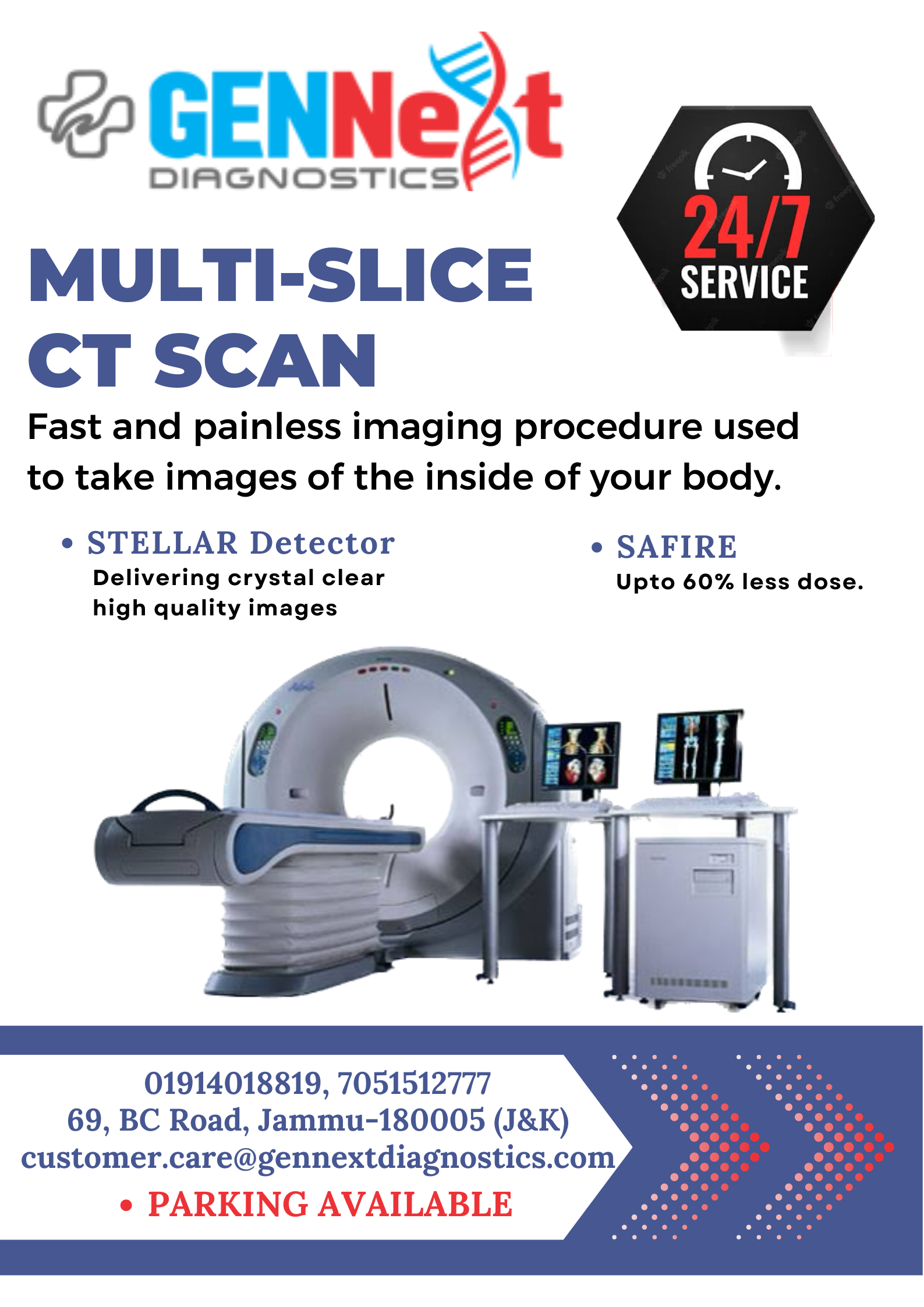A CT scan is a fast and painless imaging procedure used to take images of the inside of your body. CT is an abbreviation for Computed Tomography. CT scans are also referred to as CAT scans (Computed Axial Tomography). A CT scanner is a special kind of X-ray machine used to study the human body in cross sectional views. This allows radiologist to visualize images of the inside your body with multiple views. In addition, CT scanning can also be used to help guide biopsies as well as therapeutic & pain relieving procedures. CT scans are typically done without contrast but if your Doctor is looking to rule out a specific diagnosis, contrast may be required to help identify the pathology. CT contrast includes PO contrast which is also called oral contrast and IV (Intravenous) contrast. PO contrast consist of a drink you take prior to having the CT scan and is used when studying the digestive tract to better visualize the inside the stomach, intestines, and colon. IV contrast is contrast medium delivered through a small IV usually in the arm and can be used to visualize blood flow as in a CTA (Computed Tomography Angiography) as well as to identify by enhancing specific abnormal pathology that may be difficult to visualize without the use of IV contrast. For certain cases both PO and IV contrast may be needed to visualize specific pathologies.

How should you prepare and what to expect
If the exam is ordered without contrast, little or no preparation such as fasting may be required specific to your exam. If your exam does require preparation instructions you will be contacted 24 hours prior to your exam and given exam specific preparation instructions. If the test is ordered with IV contrast by your physician you will be required to receive a contrast injection into a vein in your arm. The technologist may ask if you have asthma or if you have allergies to Iodine and certain drugs. The IV contrast material used at GENNext Diagnostics for CT is nonionic iodine and is less likely to cause an allergic reaction than standard iodine contrast. You will be asked not to consume food 4 hours prior your exam to avoid complications during the rare event of an anaphylactic contrast reaction. In addition, patients 60 years or older require a blood test for renal (Kidney) functions. It is very important to provide us with relevant previous exams such as CT and/or MRI for our radiologist to compare. You may be asked to wear a gown during the exam or you may be allowed to wear your own clothing if it is loose-fitting and has no metal fasteners. The technologist will provide a secure locker to place all your belongings as no foreign objects are allowed in the CT suite for your own safety.
